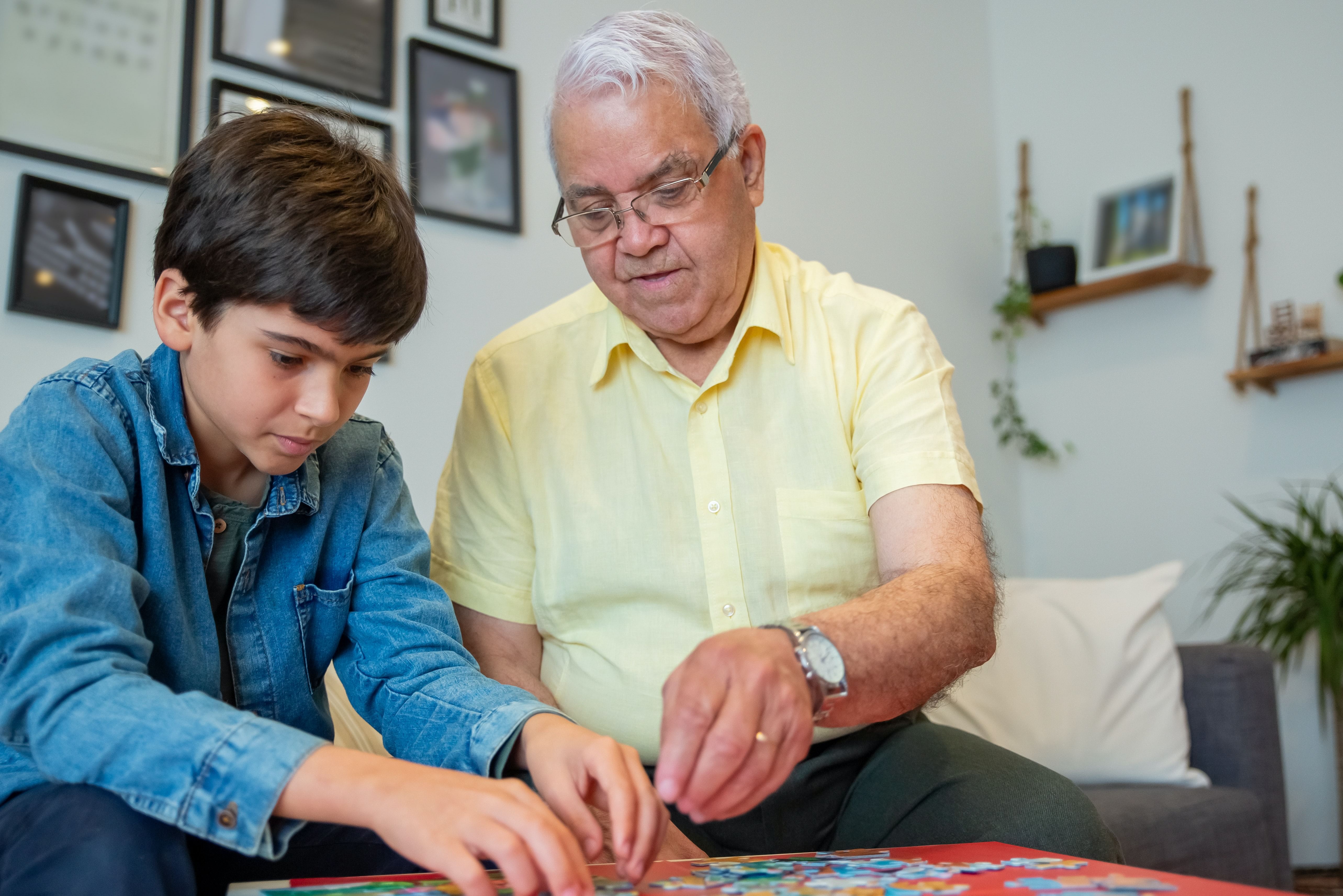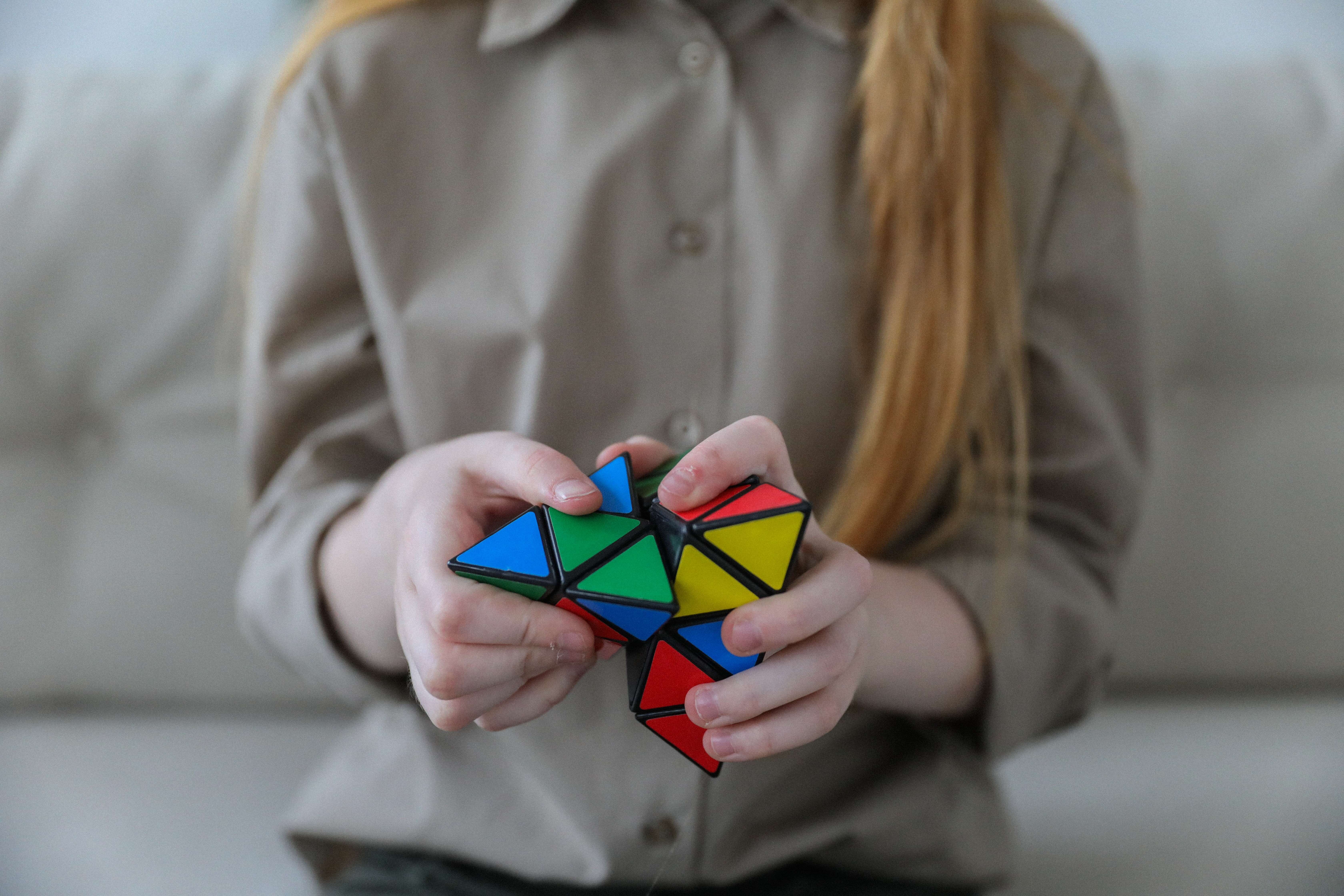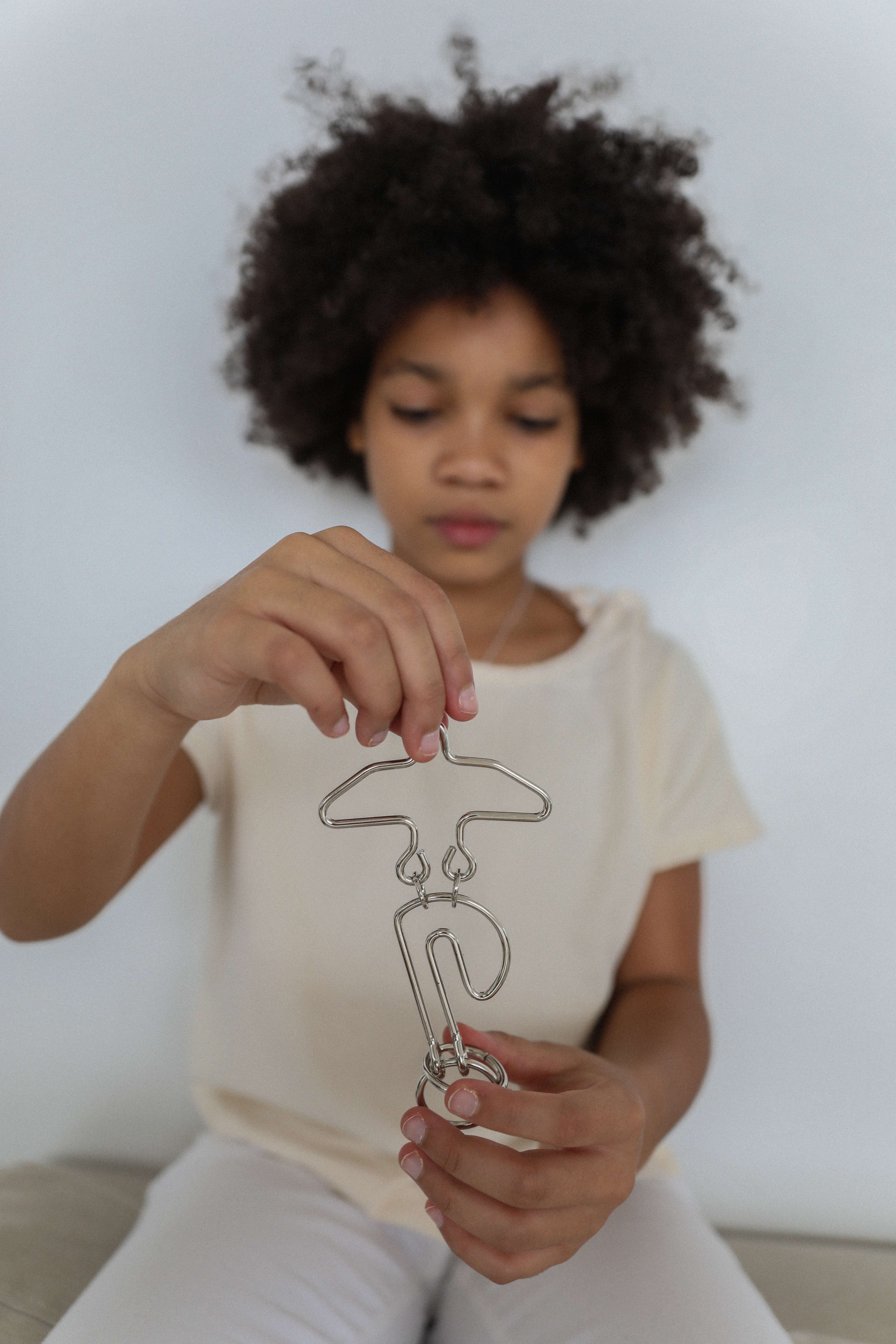8 Ways Puzzles Help Train your Brain
Our entire life revolves around screens. Many of us wake up and look at a little screen before heading to work to look at a slightly larger screen. Once we’re done with that, we head home, eat dinner and “relax” by watching a bigger screen. All this screen time can have some serious negative effects on both our mental and physical health though—especially in growing children and elderly individuals.

In an effort to reduce screen time, many people have turned to puzzles. In early 2020, world-renowned gamemaker Ravensburger reported a 370% increase in sales. While some might call it a retro revolution, others might just see everyone from Gen Z and Millennials to over-worked parents to seniors trying to return to a quiet pastime of childhood.
Besides being a fun activity to do instead of watching TV, puzzles also have a ton of great benefits for your overall well-being. A 2018 study from the Journal of the American Geriatrics Society found that people who regularly did brain teasers, puzzles or other “brain training” regularly saw improvements in their mental sharpness making it easier to focus on everything from homework to accounting and cooking.
While it’s not technically a muscle, your brain can be trained just like a bicep. The more you exercise your brain, the stronger it gets. But, since your brain can’t jog or lift weights, you have to find other ways to keep it sharp. Brain teasers, logic puzzles and jigsaw puzzles are some of the best ways to do this.
Here’s 8 ways puzzles help train your brain.
 1. Puzzles can Improve Memory
1. Puzzles can Improve Memory
Puzzles are one of the easiest and most fun ways to improve your short term memory. For example, jigsaw puzzles are great at training our brains to remember a variety of shapes, sizes and pieces, and visualize where each one goes as the puzzle comes together. While not a surefire cure, some doctors also believe that the new connections formed in our brain from mindful play with puzzles and puzzle toys can even play a key role in slowing the cognitive decline of Alzheimer’s patients or other individuals with dementia.
2. Full Brain Exercise
Our brain is separated into two hemispheres which both control distinctly different functions. The left brain is more analytical and logical, while the right-brain is where most of our creativity, emotions and intuitive thinking lives. While some people might be naturally more left-brained or right-brained, puzzles are a rare moment where you engage both sides of your brain in a total mental workout. And, exercising your brain is a great way to slow cognitive decline.
While solving a puzzle or brain teaser, both sides of your brain work together to find a unique answer. Often, your occipital lobe, the visual processing center of your brain that helps make connections between colors and shapes, will even jump in on the fun. As such, all parts of your brain are being exercised, allowing you to have a ton of fun while also improving your cognitive function.
3. They Improve Your Problem Solving Skills
Puzzles force you to stretch your brain and develop creative solutions. By requiring you to formulate different theories and test various hypotheses, puzzles teach us the problem-solving skills needed to more easily change our perspectives and adjust when things don’t go as planned.
4. Better Visual-Spatial Reasoning
 Solving puzzles and brain teasers requires you to simultaneously see both the puzzle as a whole and the smaller steps it takes to get there. For example, you need to be able to look at all the individual pieces of a jigsaw puzzle or available spaces on a crossword puzzle to see how everything fits together.
Solving puzzles and brain teasers requires you to simultaneously see both the puzzle as a whole and the smaller steps it takes to get there. For example, you need to be able to look at all the individual pieces of a jigsaw puzzle or available spaces on a crossword puzzle to see how everything fits together.
Exercising your brain like this on a regular or daily basis can help improve your visual-spatial reasoning skills. This has been shown to have a wide array of benefits such as making you a better driver or a master packer for vacation or when taking your college-aged child (and their shocking amount of stuff) to school.
5. Reduced Stress and Enhanced Moods
Puzzles require your complete focus. By concentrating on one particular task, our brains can actually go into a meditative state that promotes a positive mindset and reduces our stress levels. In fact, this mindful play can make us more capable of coping with stress as a whole.
Beyond the fact that doing puzzles or logic problems has been proven to give your brain a mental workout, that feeling of satisfaction you get when you solve the puzzle is also backed by science. Successfully solving a puzzle or brain teaser has been shown to release a rush of dopamine, the chemical in your brain responsible for regulating your mood, concentration and memory. As such, you’ll feel happier and be in a better mood when you solve a challenging puzzle or even an easy riddle for kids.
6. Increased Productivity
In recent years, many offices around the world have started to put puzzles, brainteasers, mindful play games and other toys in their break rooms. Beyond giving employees a fun reprieve from work, there’s actually a huge mental benefit to this.
Solving puzzles not only makes us happier and less stressed, but they also force our brain to concentrate on something other than the daily strain of work and life. As such, disconnecting for even just a few minutes to do a puzzle can actually make it easier to focus and ultimately increase your productivity.
7. They Can Raise your IQ Score
With puzzles being shown to improve everything from our memory and concentration to our vocabulary, reasoning and productivity skills, it’s not surprising to see that they can also help raise your IQ score. In fact, doing puzzles for just 25 minutes a day can potentially give you a 4 point boost in IQ according to a study conducted by the University of Michigan.

8. They Help the Brain Develop and Keep it Strong Later in Life
Puzzles are great for all ages. In fact, both kids and adults can benefit from solving a puzzle daily. Playing with puzzles, puzzle toys, building blocks, LEGOs and other shape games can play a huge role in helping children develop spatial awareness skills and also preparing them with the necessary cognitive function to better process S.T.E.M. (science, technology, engineering and mathematics) projects according to Dr. Brian Verdine of the University of Delaware. Combined with a variety of emotional benefits and mood boosting capabilities, puzzles are a great way to support a growing child’s brain.
As we age, our brains naturally decline. However, by keeping your mind focused on puzzles and problem-solving tasks, you can improve short term memory and potentially delay, or reduce, the impact of dementia and Alzheimer’s disease. Because it’s possible they also slow brain cell damage as a whole, some researchers even believe starting to solve puzzles early in life can help decrease your chances of developing Alzheimer’s or other cognitive disorders as you age.
It’s never too late to start training your brain! Check out all our awesome puzzles and make puzzling a regular part of your life. We even have some free tricky riddles and brain teasers to get you started today!
Explore all our puzzles
Useful links for our magic products

